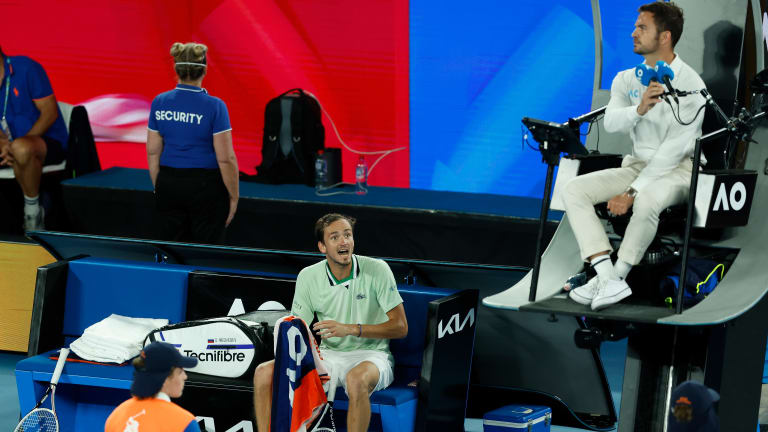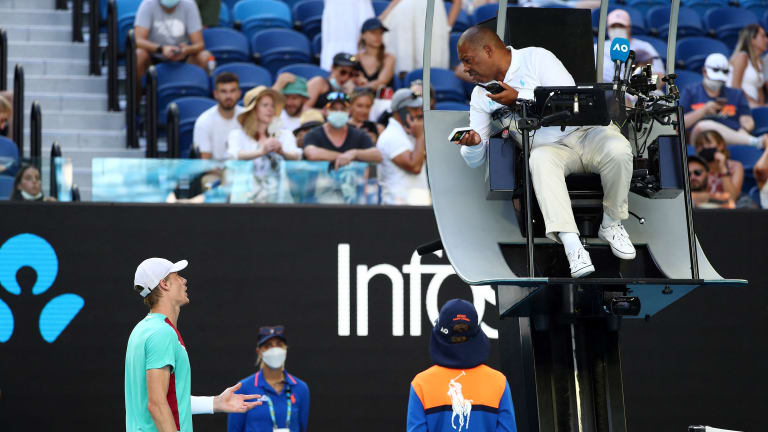It's time to take a hard look at the relationship between players and umpires
By Feb 25, 2022Style Points
Best Dressed Down Under: Top fashion moments from the Australian Open
By Jan 27, 2026Australian Open
Daniil Medvedev was trying “to win one more” game through Learner Tien demolition at Australian Open
By Jan 25, 2026Australian Open
Daniil Medvedev won't underestimate Learner Tien in AO matchup that "drives me nuts"
By Jan 24, 2026Australian Open
Eleven of top 12 men’s seeds reach Australian Open R16, as no unseeded competitors remain
By Jan 24, 2026Australian Open
One year later in Melbourne, Learner Tien will face Daniil Medvedev again — this time as a contender
By Jan 23, 2026Quote of the Day
Daniil Medvedev learned of Tien rematch on scoreboard, doesn’t mind Australian Open draw spoilers
By Jan 23, 2026Australian Open
Daniil, Behind The Mic: Medvedev teases potential post-retirement podcast at Australian Open
By Jan 21, 2026Quote of the Day
Unbothered—or eternal optimist—Daniil Medvedev looks towards the future at Australian Open
By Jan 19, 2026Australian Open
Australian Open Expert Picks: Who will win the first Grand Slam of 2026?
By Jan 17, 2026It's time to take a hard look at the relationship between players and umpires
After Alexander Zverev’s violent tirade in Acapulco, tennis should look at how chair umpires can more effectively punish and protect themselves from abuse—whether it’s verbal or physical—by unhinged players.
Published Feb 25, 2022
Advertising
Advertising

During the Australian Open, Daniil Medvedev clashed with chair umpire Jeims Campistol.
© Getty Images
Advertising

Denis Shapovalov called Carlos Bernardes and his fellow officials "corrupt" during his loss to Rafael Nadal.
© AFP via Getty Images